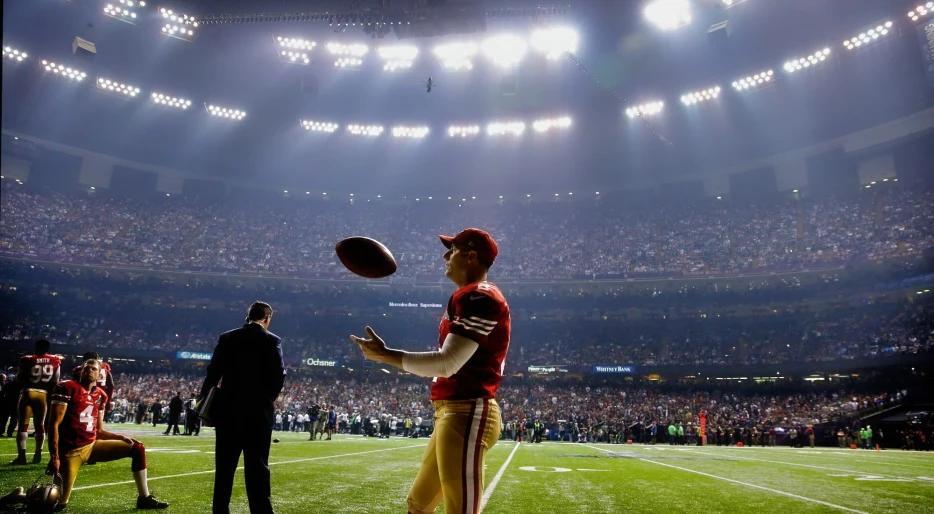
When the Baltimore Ravens’ Jacoby Jones electrified the Superdome with the longest touchdown in Super Bowl history, the stadium was deafening. But just moments after his 108-yard return in Super Bowl 47 on February 3, 2013, the unthinkable happened- the lights went out. What should have been a historic game between two coaching brothers, John and Jim Harbaugh, turned into one of the most bizarre moments in NFL history. The blackout lasted 34 minutes, changing the entire trajectory of the game and leaving millions of viewers stunned.
The Superdome in New Orleans was rocking. The Baltimore Ravens had taken a commanding 28-6 lead over the San Francisco 49ers, and the crowd noise was ricocheting off the stadium walls. Then, without warning, everything stopped.
The Super Bowl scoreboard disappeared, monitors shut down, and the stadium announcer’s voice was silenced. Most of the lights in the massive dome went out, leaving only emergency lighting in place. What had been a riotous celebration turned into hushed murmurs of confusion and concern. Players looked for their families in the stands, some stretching, others sitting in stunned silence. The press box, where journalists scrambled for information, was equally bewildered. Calls and emails were frantically sent, but nobody had an answer.
The Super Bowl blackout from 2013.
Imagine if this happens again. pic.twitter.com/fDgHW6bG1h— Ghost of WS (@BillsMafiaWS) January 30, 2025
Once fears of a more serious threat were ruled out, officials confirmed it was a power outage. But that did little to ease the uncertainty. The most famous 34 minutes of darkness in American sports history had begun.
When power was restored, the game took on an entirely different feel. Before the outage, Baltimore had complete control, seemingly on its way to an easy victory. But when play resumed, it was as if the teams had swapped jerseys. San Francisco, led by quarterback Colin Kaepernick, exploded with 17 unanswered points in just over four minutes. The momentum had swung.
The Ravens, once dominant, now found themselves scrambling to hold on. Even after a late field goal gave them some breathing room, the 49ers had a final chance to score and steal the game. But Baltimore’s defense held firm, securing a 34-31 win. A game that had seemed one-sided had transformed into a nail-biting thriller.
Also Read: Why Is The Super Bowl Always Played On Sunday?
For some, the sudden outage seemed too convenient to be accidental. Conspiracy theories swirled. In his final NFL game, Ravens linebacker Ray Lewis voiced his suspicions. “I’m not gonna accuse nobody of nothing-because I don’t know facts,” he said with a chuckle in the NFL’s America’s Game series. “But you’re a zillion-dollar company, and your lights go out? No. No way.”
Officially, an investigation traced the problem to a faulty relay device- ironically, a piece of equipment meant to protect the stadium from power problems. It...